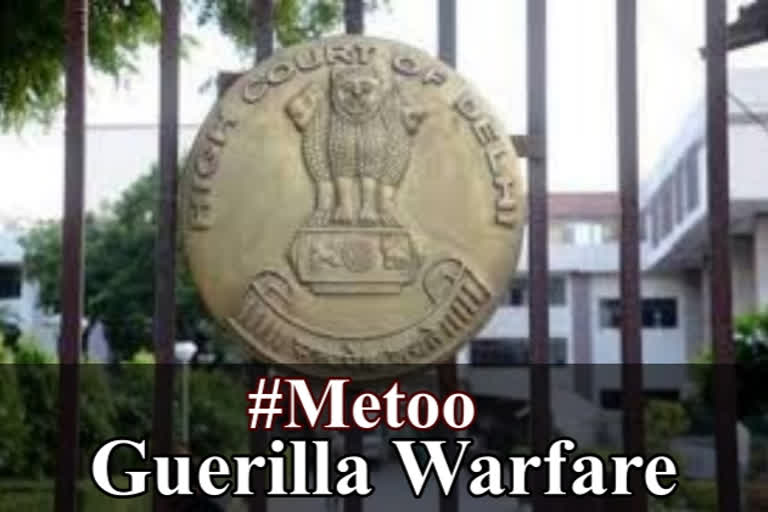New Delhi: Persons making allegedly defamatory or motivated statements cannot be permitted to indulge in "guerilla warfare" and be the judge in their own case by seeking anonymity and not giving an opportunity to the accused to defend, the Delhi High Court has observed.
Maintaining anonymity of identity in litigation appears to run counter to Indian jurisprudence of adversarial nature of judicial proceedings, the fairness of procedure and equality of opportunity to all parties, the high court said.
Justice Rajiv Sahai Endlaw made these observations while hearing submissions on behalf of Instagram handle Herdsceneand - which sought to maintain anonymity in a suit filed against it by artist Subodh Gupta seeking removal of the allegedly defamatory content made against him on social media.
In the interim, the court permitted the Instagram account handle to file in a sealed cover its reply and 'vakalatnama' (document empowering a lawyer to act for and on behalf of his client) to maintain its anonymity at this stage and furnish a redacted copy of its response to Gupta.
The counsel for the anonymous Instagram account holder said his client was maintaining the handle, reports incidents on that account and was seeking anonymity as part of his right and irreparable loss would be caused to him if his identity is disclosed at this stage.
The court, in its order of November 18, said though it tried to hear the counsel for the account holder regarding its entitlement to such anonymity and to fight a litigation without disclosing the real identity, after some hearing it appeared that till its pleadings are before the court, appropriate arguments even cannot be heard.
The judge said that even the counsel was sounding reluctant to spell out his case in the open court.
"Allowing the defendant No.1 (account holder) to contest the claim of the plaintiff (Gupta), not only knowing the case but also knowing identity of the plaintiff, while making the plaintiff press his claim against defendant No.1 without knowing the entire defence of defendant No.1 and without even knowing identity of defendant No.1, will amount to treating the two unequally and which is against the very tenets of our jurisprudence. Disclosing the identity to the court would not redress the anomaly," the court said.
Also read: Haren Pandya murder: SC dismisses review petition against conviction of nine accused
It said that even in the past, whenever the courts have proceeded to adjudicate relying on material shared by one party only with the court and concealing it from the opposite party, it has created unnecessary suspicion on the merits of the decision and invited criticism, diminishing the faith of public in the decision making process and judiciary.
